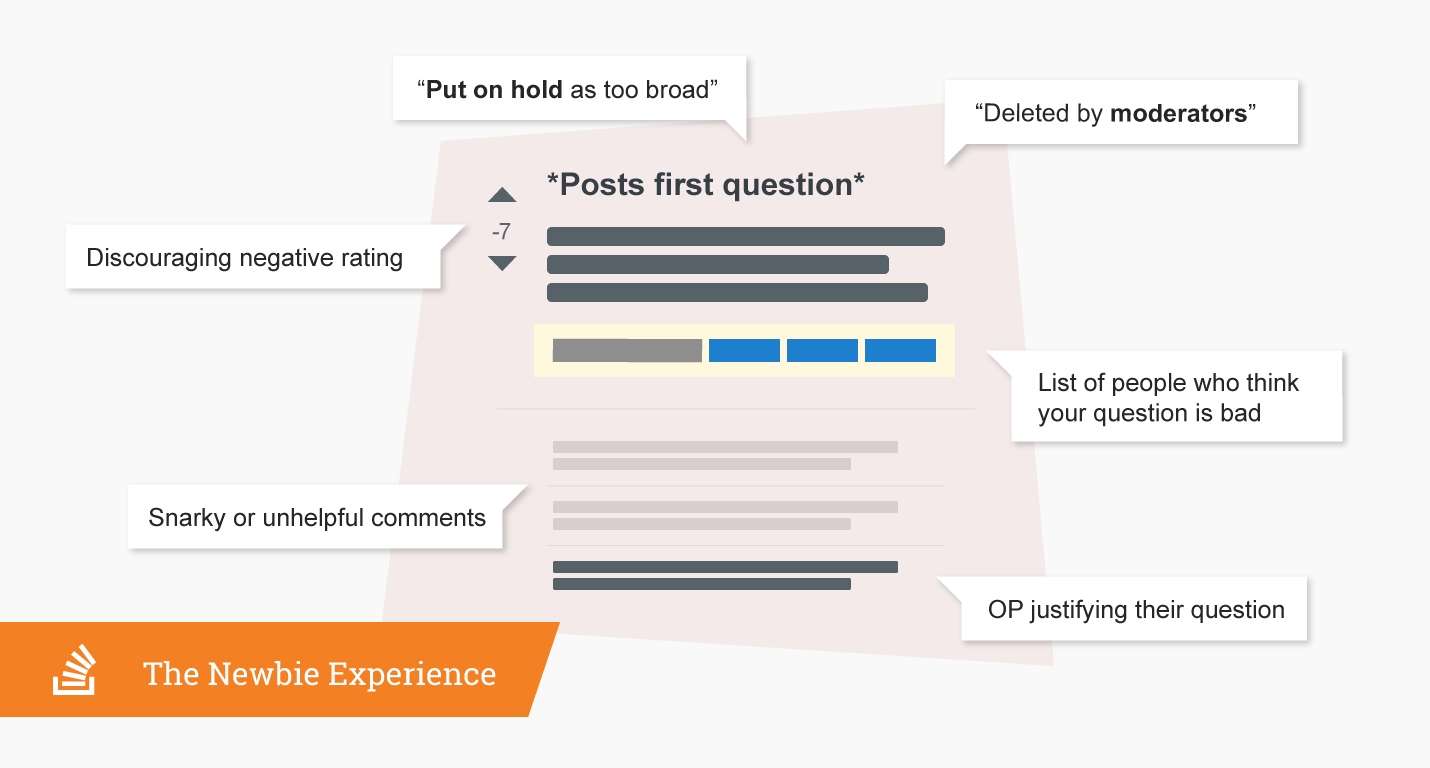The Power to Be Emotionally Mature
post by Liron · 2019-09-16T02:41:37.604Z · LW · GW · 2 commentsContents
This is Part VII of the Specificity Sequence
A "Disgusting Slob" Roommate (h/t Eliezer)
An "Unfriendly" Q&A Community
None
4 comments
This is Part VII of the Specificity Sequence [LW · GW]
When Steve [LW · GW] unknowingly lacks an understanding of what his claim that "Uber exploits its drivers" means, we can say that he's being intellectually immature. Similarly, when someone unknowingly lacks an understanding of the cause of an emotion they're expressing, we can say they're being emotionally immature.
Imagine a 7-year-old boy playing with his sister in the park at dusk, who doesn't realize that he's currently tired and cranky. Sis gives him a soft punch on the arm, and suddenly he bursts into tears, runs to his mom and complains that his sister was being mean to him.
Boy: Sis was mean to me!
Mom: What specifically did she do?
Boy: She punched me!
Mom: Was it a hard punch or just a mean punch?
Boy: It was just a mean punch!

This is the emotional equivalent of:
Steve: Uber exploits its drivers!
Liron: What specifically do they do?
Steve: They pay them too little!
Liron: Is Uber paying a typical driver less than that driver would earn if Uber didn't exist, or just too little to be non-exploitative?
Steve: Just too little to be non-exploitative!
If you want to be emotionally mature, there's a mental operation you can do which we'll call grounding your emotions because it's analogous to grounding your terms [LW · GW].
Recall that grounding a term requires you to describe a specific stimulus that you'd mentally classify within that term, like when we grounded the concept of “red” by saying it's something you call a traffic light when traffic is stopped. Similarly, to ground an emotionally-loaded claim, you give an example of a specific situation that you'd mentally classify within that claim.
Let’s look at a couple examples of people introspecting on the specific causes of their emotions.
A "Disgusting Slob" Roommate (h/t Eliezer [LW · GW])
Tim feels strongly that his roommate Rob is a disgusting slob, so he says, “Hey Rob, can you stop being such a slob?” and Rob says “I’m not a slob, you’re a neat freak!” And they start to hate each other.
Let’s see how Tim can do better by activating his specificity powers!
In general, when you activate your specificity powers on an emotional claim you've made, you might end up instantly demolishing the claim, like a boy who's made to realize that there's nothing inherently "mean" about his sister giving him a soft punch on the arm. But if you find that your emotion can be coherently grounded in the specific stimuli you've experienced, then you can at least figure out a specific counterfactual situation under which your emotional response would no longer be triggered.
Let's see what happens in Tim's case.
First, Tim grounds his concept of a “disgusting slob”: Tim posits that “someone who often leaves soda cans on the table, often leaves dishes in the sink, and never vacuums” is a specific stimulus that would be sufficient to mentally classify anyone as a disgusting slob. So Rob really is currently a disgusting slob, from the perspective of Tim's emotional processes.

But at least Tim can figure out a specific counterfactual situation under which his emotional response would no longer be triggered: If Rob were to stop leaving soda cans on the table, stop leaving dishes in the sink, and vacuum sometimes, then Rob would no longer have any of the specific characteristics that comprise Tim’s emotionally-loaded concept of “slob”. At that point, Tim’s feeling of Rob “being a slob” will be demolished. Rob wouldn’t be a slob anymore.
As an empathetic guy, Tim thinks the term "disgusting" is too harshly judgmental of poor Rob. But Tim doesn't have much control over the emotional part of his brain, the part that automatically applies abstract concept-labels like "disgusting" to stimuli before his sense of empathy gets a chance to weigh in. Tim's emotional brain automatically slides specific stimuli up the ladder of abstraction, and all Tim can do is painstakingly reverse-engineer the process.
An "Unfriendly" Q&A Community
When you slide any concept up or down the ladder of abstraction, you may find that the lower-level description of reality has a different qualitative character than the higher-level description. This is called "emergence". For instance, liquid water emerges from a set of non-wet H2O molecules.
Similarly, an emotional judgment about a set of specific things may not apply to any of the things individually. We can call this emotional emergence. For instance, Sara Chipps, Director of Public Q&A at Stack Overflow, recently posted about a time when she felt "attacked and diminished" by her coworkers:
On a Friday afternoon, we introduced a new company-wide policy that I felt was relatively benign. What happened next was that, from my point of view, the engineering team completely lost it. No one agreed with this policy, and they made it known over seemingly hundreds of Slack pings. After an afternoon of going back and forth, I walked away feeling emotionally drained. What had happened to my amazing coworkers that were so kind and wonderful? I felt attacked and diminished. It seemed people weren’t valuing my work or my judgment.
[...] As I went back through that Friday afternoon chat log, I was shocked to see that no one had been hurling insults. There was no one saying mean things about me or attacking my efficacy directly.
[...] My coworkers hadn’t become monsters, they were still the kind and caring people I thought they were. The monster in this case is not one person, it was created when lots of people, even with great intentions, publicly disagreed with you at the same time.
Sara realized that this incident is related to why new users of Stack Overflow's Q&A community often reported feeling that the community is "unfriendly". It's another example of emotional emergence:
In our developer survey results we read things like this:
“Caustic community for new users. There is no excuse for not being kind!” [...] “People could be less brutal” [...]
However, when our more experienced users hear this feedback they ask us to provide them with definitive examples of WHERE EXACTLY people are being unfriendly? There isn’t a lot of name calling or anger, why are they being accused of being unfriendly?
When we first learn the survey participants' judgment that Stack Overflow is "unfriendly”, we might mistakenly conclude that individual members of the community must not be acting friendly enough. The Stack Overflow team didn't jump to that conclusion; they kept an open mind while figuring out how to ground "unfriendly".
The team realized that the unfriendliness was triggered by how their site design colocates an overwhelming amount of negative feedback onto the same screen:

The judgment "unfriendly" turned out to be triggered by a combination of specific stimuli that were all fixable without improving the friendliness of any individual community members.
Being emotionally mature is pretty straightforward. So why aren't people more emotionally mature?
We've seen [LW · GW] that sliding concepts down the ladder of abstraction generally goes against the grain of your typical flow of thoughts. It's hard cognitive work.
Introspecting on the specific causes of your emotions is usually even harder work, because your brain is also spinning up various automatic processes as part of the emotional reaction you're having. If you're happy, your brain spins up processes to celebrate and spread your excitement. If you're angry, your brain spins up processes to yell and stomp around and plot revenge.
By building up your specificity muscles, you'll have an easier time using them in emotionally-charged situations, so you'll be more emotionally mature.
Next post: The Power to Teach Concepts Better [LW · GW]
2 comments
Comments sorted by top scores.
comment by Niklas DesertStorm Henckell (niklas-desertstorm-henckell) · 2020-12-06T15:47:29.841Z · LW(p) · GW(p)
I think the examples were very well chosen. What could improve the post os a resolution to the situations given.
How did they improve the newbie experience? How did Sarah resolve the issue in the company?
Maybe I missed the point but somehow it felt like these resolutions were missing.
Otherwise great articles, amazing series, helps me everyday!
comment by philh · 2019-09-19T14:24:07.802Z · LW(p) · GW(p)
The judgment “unfriendly” turned out to be triggered by a combination of specific stimuli that were all fixable without improving the friendliness of any individual community members.
To be clear though, they haven't actually done this yet, right? They have a plausible story and an angle of attack. But as far as I know they haven't checked that these specific stimuli are what trigger the "unfriendly" judgement. (Again, it's plausible, but we're now talking about people other than Sara, doing a different thing than Sara, and receiving different stimuli than Sara received. There's a lot of room for error.) And as far as I know they haven't managed to remove the "unfriendly" judgment.
(I might have missed something. I tried to skim their blog for updates since the linked post, but I couldn't see a chronological list of blog entries.)